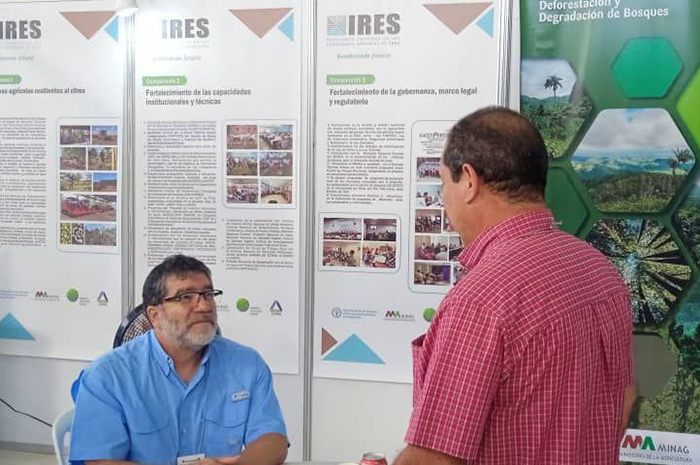
Havana, July 3 – For five years, the Climate Resilience in Cuban Agricultural Ecosystems (IRES) project has contributed to climate change mitigation with the productive restoration of 35 thousand hectares of land with degraded soils and invaded by marabou.
Approved in 2020, this initiative, implemented by the Cuban Ministry of Agriculture with technical assistance from the Food and Agriculture Organization of the United Nations (FAO) and funding from the Green Climate Fund, is exhibiting positive results at the exhibition fair for the 15th International Convention on Environment and Development, which opened today at the Havana Convention Palace.
Carlos Díaz Maza, IRES technical coordinator, told ACN exclusively that they have managed to eradicate 7,000 hectares of marabou, an invasive exotic species, in seven municipalities of the Largest of the Antilles, thanks to the acquisition of tractors, chainsaws, and parts for equipment repair.
As part of the project's actions, producers are trained in machinery management, as well as in the protocol for detecting and controlling invasive or potentially invasive plants in the country's natural and semi-natural areas, he said.

The specialist emphasized the implementation of forestry, agroforestry, and silvopastoral systems, which include the planting of forest species, fruit trees, forages, pastures, various crops, shade trees, and other elements that promote food, meat, and milk production on more than 11,000 hectares.
Work is also being done on the reforestation of forests and planting modules for bananas and cedar trees to prevent pest infection and contribute to the substitution of imports, since this wood plant is used to make boxes for tobacco marketing, added the source itself.
At the International Convention on Environment and Development, this project will present four projects related to climate change adaptation and mitigation, communication and gender in agriculture, and management through a spatial data infrastructure that uses geographic information systems to monitor the status of farms and their resources.
In collaboration with the University of Villa Clara and the Geocuba Company, this latter program is being carried out, in addition to research on local development in the community of San Pedro, Villa Clara, in conjunction with the Faculty of Communication at the University of Havana.
IRES works on the transformation of agri-food systems to make them more efficient, sustainable, resilient, and inclusive, promoting improved agricultural production and a healthy environment.
It also promotes values ??such as inclusion and gender equity in rural areas, as 40 percent of its members are women, and 14 circles of interest have been created to foster environmental education. (Text and photos: ACN)